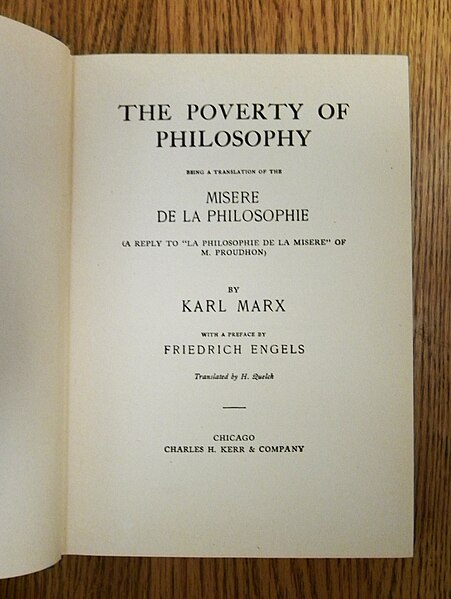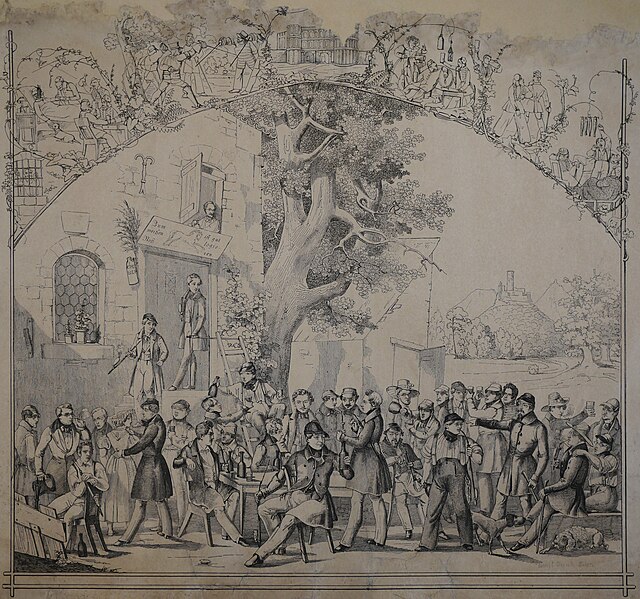The Poverty of Philosophy
The Poverty of Philosophy is a book by Karl Marx published in Paris and Brussels in 1847, where he lived in exile from 1843 until 1849. It was originally written in French as a critique of the economic and philosophical arguments of French anarchist Pierre-Joseph Proudhon set forth in his 1846 book The System of Economic Contradictions, or The Philosophy of Poverty.
Title page of the 1910 Charles H. Kerr & Co. edition of Marx's The Poverty of Philosophy. The book was translated by British socialist Harry Quelch.
Karl Marx was a German-born philosopher, economist, political theorist, historian, sociologist, journalist, and revolutionary socialist. His best-known works are the 1848 pamphlet The Communist Manifesto and the three-volume Das Kapital (1867–1894); the latter employs his critical approach of historical materialism in an analysis of capitalism and is the culmination of his intellectual efforts. Marx's ideas and theories and their subsequent development, collectively known as Marxism, have exerted enormous influence on modern intellectual, economic and political history.
Marx in 1875
Marx's birthplace, now Brückenstraße 10, in Trier. The family occupied two rooms on the ground floor and three on the first floor. Purchased by the Social Democratic Party of Germany in 1928, it now houses a museum devoted to him.
Jenny von Westphalen in the 1830s
Trierer students in front of the White Horse, among them, Karl Marx.





